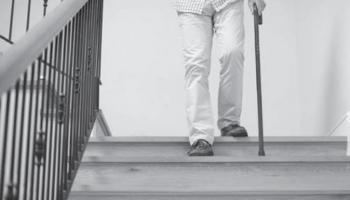
What do getting out of bed in the morning and Olympic power lifting have in common? You’re probably thinking “not much,” aside from the necessity of leaving your bed to go to the gym and lift - but it’s so much more than that. Both actions require the body’s core to function properly for the task at hand. Having a functionally strong and stable core is incredibly important, and there is not one aspect of your day to day life that is not affected in some way. From getting out of bed, sitting at your desk, walking down the street, and yes- even Olympic power lifting, your core is involved.
Your core isn’t just your six-pack, it’s layers of deep muscles that help support and stabilize your pelvis, back, hips, shoulders, and stomach. When functioning properly, the core supports the spine by providing internal pressure like an internal girdle, thereby protecting the spine from excessive load. This function is put to use when we lift heavy objects. The core also transfers force from the lower body to the upper body and vice versa, such as when swinging a golf club, serving as the central hub or link of our body.
What are some signs you might have a weak core?
• You Rely on Your Arms to Get Out of a Chair or Bed - To transition from lying or sitting to standing, your abdominals and deep core muscles have to be able to brace, while your glutes have to be strong enough to propel you to your feet. If you find you regularly rely on the strength of your hands and arms to push yourself out of your chair or bed, it’s time to add core-bracing and glutestrengthening exercises.
• You Sway as You Walk - Tilting or swaying side to side while walking is a telltale sign you’ve lost some core strength and stability. If your core muscles aren’t strong enough to control your torso while walking, your pelvis ends up dropping side to side, resulting in a slight swaying or rocking motion.
• Poor Balance - Core muscles assist in stabilizing the body while balancing, allowing us to move in any direction including on uneven terrain. Core muscles even work when we stand in one spot and prevent us from toppling over.
• Lower Back Pain - Low back pain has many causes. One of these causes can be decreased core stability. Your trunk is stabilized by core muscles. If the core is weak, this can cause other muscles to compensate and become overworked in your core, leading to back pain. A weak core can also make you more prone to back injuries even with the simplest of movements.
If you can relate to one or all of the listed signs above or want to prevent them, incorporating core exercises into your fitness routine will certainly help.
The COA offers a wide variety of classes that incorporate core strengthening exercises at varying degrees of intensity, so there’s something for everybody. If you’re interested in a more personalized experience, visit either of the COA’s Fitness Centers for a consultation with a certified personal trainer.




